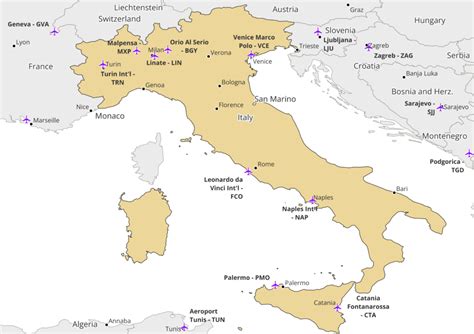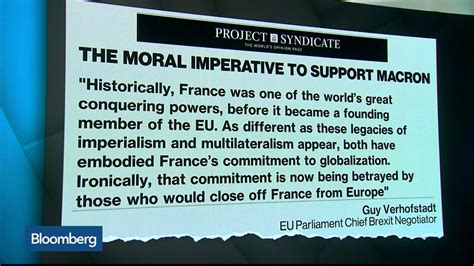
Escaping the United States for Europe in search of respite from the country’s intense political climate proved futile for one American, who found that U.S. politics followed her across the Atlantic, permeating even her seemingly distant European haven.
Frustrated by the increasingly polarized and emotionally charged political discourse in the United States, an American woman, identified only as a former communications professional who worked for Democratic political campaigns, sought refuge in Europe, hoping to find a more moderate and less divisive environment. However, she soon discovered that the long arm of American politics extends far beyond its borders, influencing global conversations and impacting even the daily lives of expatriates.
“I moved to Europe to escape U.S. politics,” she confessed, “but U.S. politics found me.”
The woman’s experience highlights a growing trend: the globalization of American political issues. With the rise of social media, 24-hour news cycles, and interconnected economies, U.S. political debates now resonate worldwide. This phenomenon has made it increasingly difficult for Americans living abroad to disconnect from the issues that dominate headlines back home.
The allure of Europe was initially strong. The woman envisioned a life free from the constant barrage of political news, a place where conversations revolved around art, culture, and local events rather than partisan squabbles. She was drawn to what she perceived as a more balanced and nuanced approach to political discussions in Europe, a stark contrast to the often-combative rhetoric prevalent in the United States.
However, her expectations were quickly challenged. She found herself constantly fielding questions from Europeans about American politics, often related to Donald Trump, Joe Biden, and other prominent figures. The January 6th insurrection at the U.S. Capitol, the ongoing debates over abortion rights, and the persistent issue of gun violence became frequent topics of conversation.
“Everywhere I went, people wanted to talk about Trump,” she explained. “It was like he was this omnipresent figure, even here.”
The woman also found that U.S. political divisions had seeped into online communities and social media groups frequented by expatriates. Discussions often devolved into heated arguments, mirroring the partisan rancor she had hoped to escape. She realized that simply changing her geographic location was not enough to shield herself from the pervasive influence of American politics.
One of the key factors contributing to this phenomenon is the global reach of American media. News outlets like CNN, Fox News, and The New York Times are widely accessible in Europe, ensuring that U.S. political events are constantly in the spotlight. Social media platforms like Facebook and Twitter further amplify these narratives, creating echo chambers where users are primarily exposed to information that confirms their existing beliefs.
The woman’s experience also reflects the growing importance of American politics on the world stage. As the world’s largest economy and a major military power, the United States wields significant influence over global affairs. Decisions made in Washington D.C. have far-reaching consequences, impacting everything from international trade to climate change policy.
Furthermore, the rise of populism and nationalism in Europe has created a fertile ground for discussions about American politics. Many Europeans are closely watching the U.S. experience, viewing it as a potential harbinger of things to come in their own countries. The success of Donald Trump, for example, has emboldened right-wing parties across Europe, leading to a surge in anti-immigrant sentiment and Euroscepticism.
For the American woman, the realization that she could not escape U.S. politics was both frustrating and enlightening. She came to understand that political engagement is not simply a matter of choice but a responsibility, especially in an increasingly interconnected world.
“I realized that I couldn’t just run away from the problem,” she said. “I had to find a way to stay informed and engaged, even from afar.”
She has since become more involved in organizations that promote civic engagement among Americans living abroad. She also makes an effort to have informed conversations with Europeans about U.S. politics, hoping to provide a more nuanced perspective than what is often portrayed in the media.
The woman’s story serves as a cautionary tale for Americans who are considering moving abroad to escape the political turmoil at home. While a change of scenery can be beneficial, it is important to recognize that the long arm of American politics can reach even the most remote corners of the world. Engaging constructively and staying informed is vital, wherever you are located. The key is finding healthy ways to remain involved without being overwhelmed.
The pervasiveness of U.S. politics abroad can be attributed to several factors: the dominance of American media, the global influence of the U.S. economy and military, and the rise of social media, which facilitates the rapid spread of information and misinformation. This interconnectedness means that even expatriates cannot entirely isolate themselves from the political currents shaping their home country. Furthermore, the increasing polarization of U.S. politics has made it a topic of intense interest and concern around the world, as other nations grapple with similar challenges of division and extremism.
The woman’s story reflects a broader trend of political migration, where individuals seek out environments that better align with their values and beliefs. However, her experience suggests that true escape is rarely possible in the modern world. Political consciousness and engagement are increasingly global phenomena, transcending national borders and shaping individual experiences in profound ways.
Moving abroad often entails adapting to new cultures, languages, and social norms. However, the expatriate experience is increasingly shaped by the long shadow of American politics, highlighting the need for global awareness and responsible citizenship, regardless of geographic location. The woman’s narrative underscores the importance of fostering constructive dialogue and critical thinking in an age of political polarization and global interconnectedness.
In-Depth Analysis and Expanded Context:
The experience of the American woman who moved to Europe only to find that U.S. politics followed her is not an isolated incident, but rather a symptom of a broader global trend. The increasing interconnectedness of the world, facilitated by technology and driven by economic and political forces, has made it virtually impossible to escape the influence of major global powers like the United States.
This phenomenon is particularly pronounced in the realm of politics. The United States, as a global superpower, exerts considerable influence on international affairs, and its domestic political debates often have ramifications far beyond its borders. This is especially true in the age of social media, where information, misinformation, and political rhetoric can spread rapidly across the globe.
The dominance of American media is another significant factor. Major news outlets like CNN, Fox News, and The New York Times have a global reach, ensuring that U.S. political events are constantly in the spotlight. This saturation of American news can make it difficult for expatriates to disconnect from the political issues back home, even if they actively try to avoid them.
Moreover, the rise of populism and nationalism in Europe has created a fertile ground for discussions about American politics. Many Europeans are closely watching the U.S. experience, viewing it as a potential harbinger of things to come in their own countries. The success of Donald Trump, for example, has emboldened right-wing parties across Europe, leading to a surge in anti-immigrant sentiment and Euroscepticism.
The American woman’s experience also reflects a growing trend of political migration, where individuals seek out environments that better align with their values and beliefs. However, her experience suggests that true escape is rarely possible in the modern world. Political consciousness and engagement are increasingly global phenomena, transcending national borders and shaping individual experiences in profound ways.
In this context, it is important for Americans living abroad to find healthy ways to stay informed and engaged without being overwhelmed by the constant barrage of political news. This may involve limiting their exposure to social media, seeking out diverse sources of information, and focusing on local issues and communities.
It is also crucial for expatriates to engage in constructive dialogue with people from different backgrounds and perspectives. This can help to bridge divides and promote understanding, both within the expatriate community and in the broader host country. By fostering constructive dialogue and critical thinking, expatriates can contribute to a more informed and engaged global citizenry.
The woman’s experience underscores the importance of global awareness and responsible citizenship, regardless of geographic location. In an increasingly interconnected world, political engagement is not simply a matter of choice but a responsibility.
The article highlights the unintended consequences of globalization and the pervasive nature of American political influence. It serves as a reminder that escaping political discord is often an illusion, and that constructive engagement and informed dialogue are essential for navigating the complexities of the modern world. The story is not just about one woman’s experience, but about the challenges and responsibilities of living in an interconnected world where political issues transcend national borders.
The case also shines a light on the increasing difficulty in achieving true separation from one’s home country in the digital age. While physical relocation might offer a change of scenery and lifestyle, the digital connectivity ensures that global events, particularly those in influential nations like the U.S., remain readily accessible and pertinent. This is further exacerbated by the algorithms of social media and news platforms, which often curate content based on users’ past engagement, potentially creating echo chambers and reinforcing existing political views, regardless of location.
Furthermore, the American woman’s experience highlights a psychological aspect of political engagement and disengagement. While seeking refuge from the intensity of U.S. politics, she inadvertently discovered the extent to which her identity and worldview were shaped by her political beliefs. This realization underscores the challenges of detaching from one’s political environment and the importance of developing coping mechanisms for managing political stress. The act of moving to another country with the hope of escaping political turmoil can itself be seen as a form of political action, reflecting a desire for a different kind of society and a different way of life.
The story also prompts reflection on the role of expatriates in bridging cultural and political divides. Expatriates, with their unique perspective and experiences, can serve as ambassadors of understanding and tolerance, helping to dispel stereotypes and promote informed dialogue. However, this requires a willingness to engage with different viewpoints and a commitment to critical thinking.
Moreover, the account of the American woman resonates with a larger demographic of individuals who feel disillusioned with their political systems and seek alternatives, whether through physical relocation or other forms of activism and engagement. It points to a growing desire for political systems that are more responsive, inclusive, and equitable.
Finally, the narrative is a testament to the enduring power of American culture and influence on the global stage. From its media and entertainment industries to its political and economic systems, the United States continues to shape the world in profound ways. While this influence can be a source of pride for some, it also carries with it a responsibility to promote responsible global citizenship and to foster constructive dialogue across cultural and political divides.
In conclusion, the American woman’s experience of finding that U.S. politics followed her to Europe encapsulates the complexities of living in an interconnected world. It highlights the challenges of escaping political discord, the importance of global awareness, and the potential for expatriates to serve as bridges of understanding. The story is a reminder that political engagement is not simply a matter of choice but a responsibility, regardless of geographic location.
Expanded Discussion on Media Influence:
The article alludes to the dominance of American media in shaping perceptions of U.S. politics abroad, but it’s crucial to delve deeper into the mechanisms through which this influence operates. Major news outlets like CNN, Fox News, and The New York Times exert a considerable impact on international audiences through their online platforms, broadcast channels, and print editions. This pervasive presence ensures that U.S. political events are constantly in the spotlight, often overshadowing local and regional news in host countries.
The content produced by these media outlets is not always neutral or objective. They often reflect the biases and perspectives of their owners, editors, and journalists, which can shape the way U.S. politics is perceived abroad. For example, a news outlet that leans heavily to the right may present a more favorable view of conservative politicians and policies, while a news outlet that leans to the left may offer a more critical perspective. These biases can influence the way international audiences understand and interpret U.S. political events, potentially leading to misperceptions and misunderstandings.
Social media platforms further amplify these narratives, creating echo chambers where users are primarily exposed to information that confirms their existing beliefs. Algorithms used by platforms like Facebook and Twitter often prioritize content that is likely to generate engagement, which can include sensationalized or polarizing news stories. This can lead to a skewed perception of U.S. politics, as users are bombarded with extreme viewpoints and divisive rhetoric.
The dominance of American media can also have a chilling effect on local media in host countries. Local news outlets may struggle to compete with the resources and reach of American media giants, leading to a decline in local journalism and a greater reliance on American sources for information about U.S. politics. This can further exacerbate the problem of biased reporting and the spread of misinformation.
In addition to news media, American entertainment industries also play a significant role in shaping perceptions of U.S. politics abroad. Television shows, movies, and music often portray American political figures and events in a way that is both entertaining and informative. However, these portrayals are not always accurate or representative. They can reinforce stereotypes and perpetuate myths about American politics, particularly if the audience does not have access to alternative sources of information.
To mitigate the negative effects of American media dominance, it is important for expatriates to seek out diverse sources of information and to engage in critical thinking. This may involve reading news from multiple perspectives, consulting with local experts, and challenging their own biases and assumptions. It is also crucial to support local journalism and to promote media literacy, so that individuals can better understand and evaluate the information they consume.
By taking these steps, expatriates can become more informed and engaged global citizens, contributing to a more nuanced and balanced understanding of U.S. politics abroad.
FAQ Section:
1. Why did the woman move to Europe in the first place?
She moved to Europe seeking respite from the intense and polarized political climate in the United States, hoping for a more moderate environment.
2. What specific aspects of U.S. politics followed her to Europe?
Topics like Donald Trump, the January 6th insurrection, abortion rights debates, and gun violence were frequent conversation starters, even among Europeans.
3. How did social media contribute to the problem of escaping U.S. politics?
U.S. political divisions seeped into online communities and social media groups frequented by expatriates, leading to heated arguments and echo chambers, mirroring the polarization she was trying to avoid.
4. What did the woman learn from her experience?
She learned that she couldn’t simply run away from the problem and that political engagement is a responsibility, even from afar. She became more involved in organizations that promote civic engagement among Americans living abroad.
5. What can other Americans living abroad do to cope with the pervasiveness of U.S. politics?
They can find healthy ways to stay informed without being overwhelmed, such as limiting social media exposure, seeking diverse sources of information, and focusing on local issues and communities. Constructive dialogue and critical thinking are also crucial.









